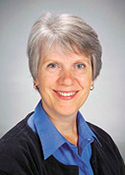“This is the day the Lord has made. Let us rejoice …” These words came to me in the quiet, early hours of November 6. The day after. Before I turned to any news.
The night before, I waited until 8:30, then 8:45 pm, to check the election news the world was hanging on. I was itching for info, but I can get too wrapped up in politics, so I held back, leaving the radio off as I did dishes while my son made cookies.
The news, when it came, confirmed what I had expected. I did not stay up late to watch.
Cards on the table: I am not a Trump fan. I am not a fan of Kamala Harris either (more on that below), but I would have felt better if she had won.
I do not assume those reading this share my leanings. A preference for U.S. Democrats is not a requirement for participation in the denomination this magazine serves.
The odor of an election
The outrage and bombasity and incredulity flow easily on both sides. “Emotional incontinence,” Andrew Coyne aptly called it in the Globe and Mail, though he was referring only to one side.
On Wednesday morning, given what the day would surely bring, I took some time before reading Coyne or any other news. I first read an old essay by the late Doc Schroeder, who taught theology at Canadian Mennonite Bible College for many years. And I read the Magnificat. I should have read the Beatitudes too.
I was seeking another plane. Truthfully, I was a bit desperate for an antidote to disdain—for strength to resist the vortex of the partisan power madness.
Anabaptist antidote
I see Schroeder as part of an Anabaptist stream of spirit that contemplates turning away from worldly power. In a paper called “The New Testament Haustafel: Egalitarian or Status Quo?” he writes about the call in I Peter 2 to “be subject” to human authorities.
His argument is intricate and fully scandalous in this age of fighting for rights and claiming every bit of power possible. Many people will recoil at any hint of being subject to anything.
I cannot summarize his argument here, but what I take from it, in broadest terms, is that there is a different game in town. Not all direct battles against an unjust status quo are holy battles.
It matters who wins the U.S. election, but there is an entirely different sort of power that functions in an entirely different sort of way.
Jesus critiqued the powerful, sided with the outcast and proclaimed release of the captive. Then he rode into Jerusalem, wept in a garden, told Peter to put his sword away and submitted to death at the hands of the authorities, splayed out, helpless, arms spread wide.
The posture of Jesus on the cross was not that of someone with a defiant fist in the air.
Kamala behind the pulpit
Did Kamala Harris explore the up-side-down power of the cross when she spoke in a Detroit church on the Sunday before the election?
Did she speak about strength in weakness as she used faith and church in her effort to become commander of an army that spends billions perfecting the science of killing? Did she talk about how Jesus “emptied himself, taking the form of a slave” as she strove and strained to become chief champion of the most over-consumptive, greed-beholden economy ever?
Palm Sunday mix-up
When I see Christians putting great hopes in any political figure, I think of the people cheering as Jesus rode into Jerusalem. Many surely hoped Jesus would deliver a political victory. Freedom would increase. Maybe the economy would improve. Better laws would be established. Oppression would ease. The detestables would tuck tail.
Such longings were misplaced.
Jesus overthrew no earthly power. He didn’t appear in risen form to the political overlords of the day to wow them into submission. He didn’t make poverty history. He didn’t launch a non-violent direct action campaign or achieve land reform. He certainly didn’t toot a dog whistle for the Zealots who wanted to incite armed rebellion against the Roman Empire.
Spiritual angling
Jesus was not angling for political leverage. He wasn’t jostling for earthly power. He wasn’t scheming about how to get the vote out. He wasn’t freaking out about elections, though I imagine he would have had compassion on those who might.
I feel tension around this because I have worked directly with seasoned strategists, organizers, campaigners, lawyers, grassroots Indigenous rabble rousers, fearless chiefs, shareholder action experts and lobbyists. There is a place for such work.
A great many people need real here-and-now change. Indeed, Jesus healed some here-and-now diseases and cast out here-and-now demons. He comforted, consoled, forgave and occasionally fed. Then he hung on a cross.
The U.S. election will have direct consequences for many vulnerable people in many parts of the world, some of whom voted for Trump and expect improvements to their here-and-now reality.
Surely the Good News in this context is not just that the Democrats might win in four years.
4-year spiritual discipline
During Trump’s first term, I spent far too much time on CNN.com and Foxnews.com. So on the night of the 2020 election, when it looked, as it did, like Trump would be reelected, I swore off CNN and Fox News. I was not going to be sucked into that black hole for another four years. I have not been back since, even though Biden won.
I will not get drawn into four years of incredulity and animosity now.
Texas ties
The day after the election, I called my dear Trump-loving friend who now lives in rural Texas. We’ve been friends since our earliest days of Sunday school. I’ve visited him in Texas. We talk every few months.
I told him I wanted to talk to someone who was happy about the election outcome. He certainly was.
We talked about the World Economic Forum, CBC, racism (he has three adopted kids who are Black), raising chickens, whether he would buy a used car from Trump, AR-15s and Palm Sunday.
We talked about my family heading down for a visit.
It was great. Especially talking about Palm Sunday and the notion that cheering on worldly power players—of whatever stripe—misses the point of Jesus. Common ground.
When people sneer at Trump supporters or when Globe and Mail columnists openly hate on Trump nation or when leftist Christians lament the election outcome as though every enlightened person would vote Democrat, they lose me.
A different donkey
I very much feel the pull of partisan power politics. I feel the pull of acrimony. I ask God to help me resist, to take a holy step back.
I imagine Jesus riding on that donkey (not the Democratic donkey!) into Jerusalem. Amid the energy of the crowds, I imagine his equanimity, deep understanding, sadness, acceptance of suffering to come and belief in a different sort of power.







Leave a Reply
You must be logged in to post a comment.